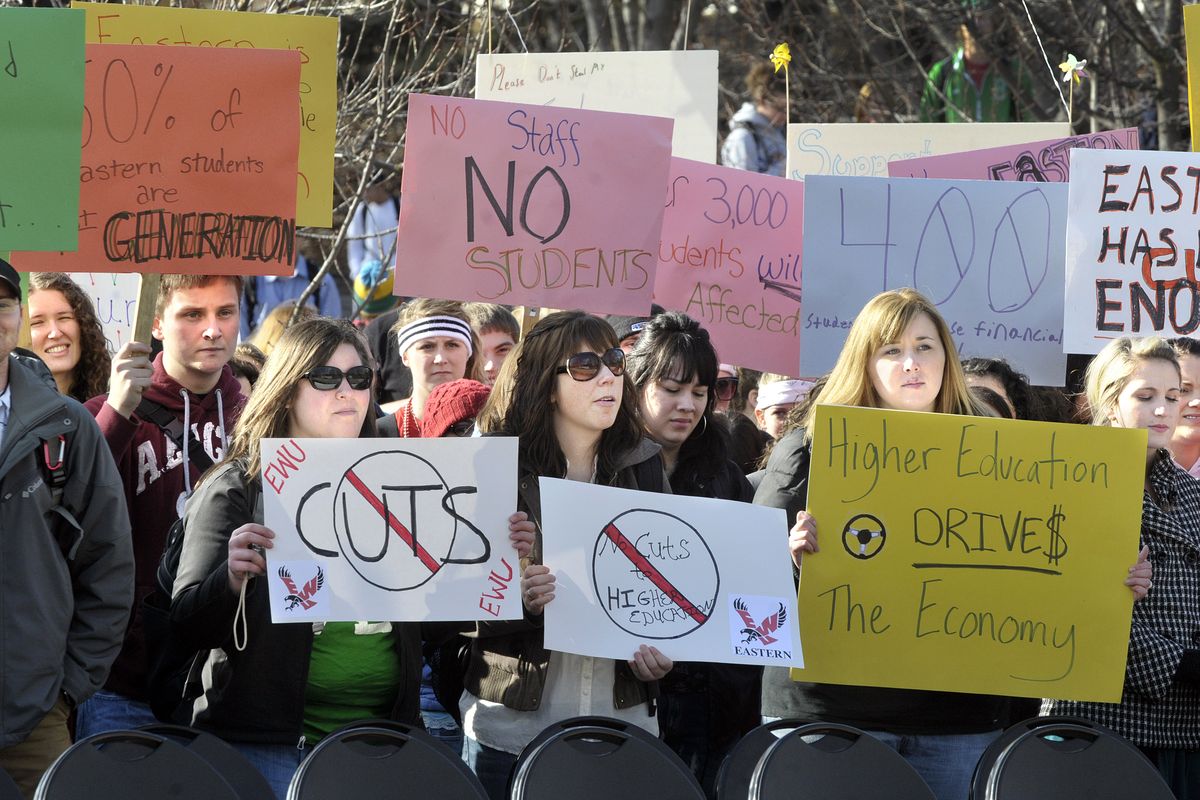Students, faculty rise up against cuts
Budget reductions, tuition hikes prompt campus walkouts

More than 500 students and faculty staged a noon-hour walkout at Eastern Washington University on Thursday to protest cuts in state university spending and increases in tuition.
The protest was mirrored at Washington State University in Pullman, where about 150 students and staff held a similar demonstration on the Terrell Mall.
The demonstrations reflected growing frustration over budget cuts on college campuses.
EWU student Marc Ebel said during the rally that students should not be forced to shoulder “all of the burden” of the state’s budget problems.
He said students are being turned into a de facto rainy-day fund for a cash-starved state government.
Bethany Abbott, a senior at EWU, was busy signing up new voters during the rally in an effort to increase students’ political clout.
She said she fears the cuts will result in fewer teachers, fewer class offerings and ultimately, fewer students.
Higher education benefits the state, with 73 percent of EWU graduates going on to careers in Washington, she said.
“An investment in our higher education is really an investment in our state as a whole,” she said.
University President Rodolfo Arévalo told the students that he is working to convince lawmakers of the need to support higher education and “every one of you.”
Professor Raphael Guillory, president of the faculty organization, told students, “The state needs to be behind your dreams of becoming who you want to be.”
Lawmakers cut $13 million from EWU’s annual budget a year ago, and proposals could strip another $3 million from university operations, as well as $8 million to $10 million from student financial aid, officials said.
In-state tuition and fees at EWU have gone from $3,927 a year in 2004-’05 to $5,445 for the current school year, according to the Higher Education Coordinating Board.
The legislature is also considering another 14 percent increase in tuition for next year and additional increases in subsequent years, said Kris Byrum of the Associated Students of EWU.
More than 80 percent of EWU students receive financial aid, including work study, which Byrum said could be cut drastically by lawmakers.
“We want them to take our concerns into consideration when they are making policy,” he said.
At WSU, Jackson Shultz said the demonstrations were a good way to call public attention to the developing funding crisis in higher education. He said additional walkouts or student strikes are likely on March 4 and April 7.
“Students are looking at our long-term goals and futures,” he said.